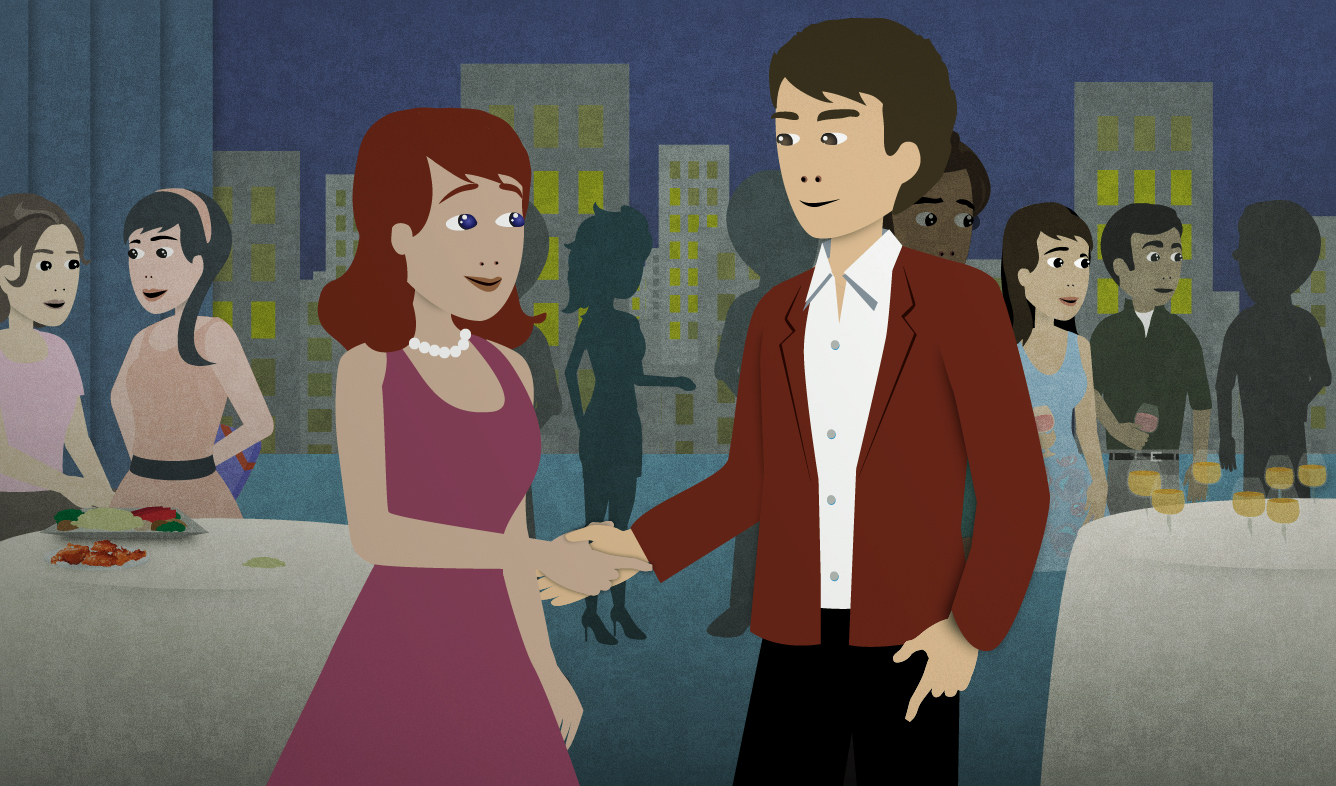“OK. Well, it was a pleasure meeting you.”
You met someone at a party and were talking with them for a few minutes. Now she has signaled that she's going to end the conversation and go talk to other people. You say this to say "goodbye" to her politely.
OK. Well, it was a pleasure meeting you.
Want Video and Sound? Follow us on YouTube

Well
There are several uses for the word "well". One important use is to show that you are ready to finish a conversation. The end of a conversation might go something like this:
A: Well, I look forward to working with you.
B: Yeah, me too.
A: See you around.
B: Bye.
Some other examples of "well" used to end a conversation are:
It was a pleasure meeting you.
This is a polite phrase that you say to someone that you've just met for the first time at the end of the conversation. It's a bit formal. Some more casual phrases that mean mostly the same thing are:
It was nice to meet you.
Nice meeting you.
How do you decide when to use a more formal phrase or a more casual one to say goodbye to a person you just met?
- If you made a lot of jokes with this person during your conversation, you might use the casual version.
- If you met at a formal occasion where you were all wearing suits or nice dresses, you might use the formal version.
- If you want to impress the other person because they're more powerful and important than you, you can use the more formal version.
- If you think you're going to speak with this person again soon, like when you've been introduced to a new coworker, use the more casual version.
Remember that these are phrases that you say at the end of the conversation. At the beginning of a conversation, there are phrases that sound similar but are a little different:
Nice to meet you.
Pleased to meet you.
"Pleased to meet you" sounds too formal and old-fashioned to me, but some people might use it.
OK.
One of the ways that English speakers use "OK" is to signal a change in the flow of conversation.
For example, before you begin a meeting everyone might be making small talk and chatting about different topics. To start the serious business part of the meeting, you can start with "OK".
You can also use "OK" when you want to:
- start a new topic of conversation
-
announce a decision
-
ask other people to make a decision
-
end a conversation
